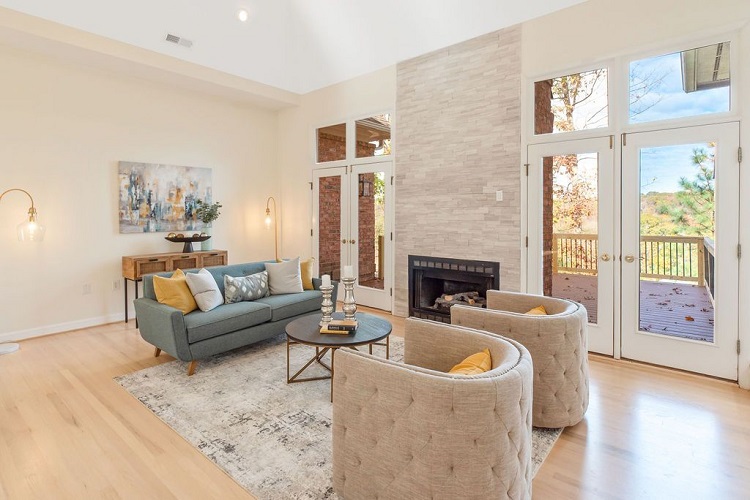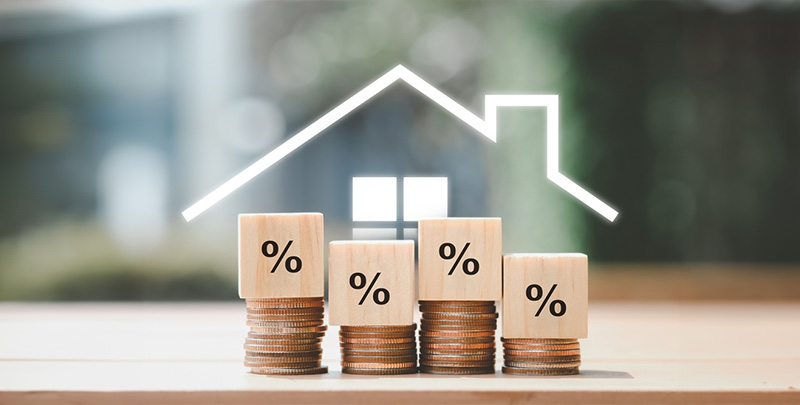Getting a home ready for sale takes more than a tidy-up and a quick vacuum. Staging is all about showing your property in its best light, but some choices can do more harm than good. You’re not just decorating for yourself anymore, you’re trying to help someone else picture their life in your space. That shift in mindset matters a lot.
Now, while there’s plenty of advice on what to do, not enough people talk about what to avoid. So, here’s a no-nonsense list of what not to do when staging a house. Trust me, these are things that could quietly turn a potential buyer off before they’ve even reached the kitchen.
1. Leaving Personal Items Everywhere
You might love the photos from your family holiday in Greece, but buyers don’t need to see them. The goal is to help them imagine themselves living there, not to give them a tour of your life. It’s nothing personal, but personal touches can be a distraction.
And it’s not just photos. Think kids’ artwork on the fridge, toothbrushes left out, or a massive shoe rack by the door. Tidy them away. You’re aiming for a clean slate, not a scrapbook.
2. Overdoing the Fragrance
We get it, you want the house to smell fresh. But there’s a fine line between “fresh” and “walking into a perfume shop”. Scented candles, plug-ins, diffusers… piling them on can actually backfire. Buyers may wonder what you’re trying to cover up.
Go for a natural clean smell instead. Open the windows, air the place out, and maybe add a single vase of fresh flowers. That’s enough. Let the house speak for itself.
3. Ignoring the Lighting
Lighting can change the whole feel of a space. If the room’s too dark, it feels smaller and less inviting. If it’s harsh or flickering, it feels cold or clinical. And yes, buyers do notice.
Don’t leave blown bulbs in the hallway or forget about corner lamps that haven’t worked in years. It’s worth checking every light source in the house and swapping bulbs to warm white where possible. You want soft and bright, not blinding or gloomy.
4. Going Overboard with Neutral Colours
Neutrals are a safe bet, sure. But turning everything beige or grey can actually leave the place feeling lifeless. There’s a difference between clean and cold.
You don’t need to paint the walls neon green to add character, but a well-placed piece of art or a colourful cushion can make a room pop without overwhelming it. The space should feel lived-in but not overly lived-in, if you know what I mean.
5. Cluttering the Space with Furniture
Trying to show how much a room can hold doesn’t mean stuffing it like a storage unit. Too many chairs, shelves, or side tables can make a room feel cramped, even if it’s a good size.
Think balance. A couple of key pieces in each space can give a sense of purpose without overwhelming it. That oversized sectional sofa might be perfect for movie night, but if it eats up half the lounge, it’s got to go.
6. Forgetting About the Outside
You’d be surprised how many people focus so much on the inside that they forget the garden, front path, or even the bins by the gate. First impressions start the moment someone pulls up.
Overgrown grass, cracked paving stones, or peeling paint on the door? It all chips away at the value in someone’s mind. A quick mow, a sweep of the driveway, and maybe a potted plant by the door can change the whole feel.
7. Leaving Odd Jobs Half Done
That wall you half-stripped six months ago? The cabinet door hanging on by one hinge? These little things jump out, and they scream “maintenance issue”.
Even if you think “Oh, they’ll probably change that anyway”, buyers often look for reasons to haggle or walk away. Small repairs make a big difference. Patch the wall. Fix the hinge. Tighten that loose tap in the bathroom. These are low-effort fixes with high return.
8. Using Every Room for Storage
Got a spare room that’s become your unofficial storage unit? That’s a red flag for buyers. They won’t see “loads of space”, they’ll see clutter and confusion.
Try to give every room a clear purpose. If it’s supposed to be a guest room, put a bed and a lamp in there. If it’s an office, add a desk and a chair. Even small, staged spaces feel bigger when they’re properly defined.
9. Ignoring Strange Smells
This one’s awkward, but it matters. You might not even notice the smell of pets, damp, or yesterday’s cooking anymore. But someone walking in for the first time will pick up on it straight away.
Instead of masking smells with sprays, find the source. Empty the bins. Wash the curtains. Get the carpets cleaned if needed. If there’s a damp problem, get it sorted. You can’t cover that with a vanilla candle. Buyers will sniff it out, literally.
10. Staging in a Way That Feels Fake
It’s tempting to go full “showroom” and make everything pristine and posed. But if the house feels too fake, it doesn’t feel like a home. Don’t set the dining table with silver chargers and folded napkins unless you’re selling a mansion.
You’re not aiming for magazine-ready. You’re aiming for welcoming. A cushion that’s slightly off-centre or a book on the coffee table is fine. It’s the little lived-in touches that make it feel real, just not too real.
11. Forgetting About Sound
You might not think about how your home sounds during a viewing, but it makes a difference. Squeaky doors, loud ticking clocks, or even traffic noise can become distractions.
Fix the squeaks with a bit of oil. If the street’s noisy, consider some soft music playing quietly in the background. It’s not about trickery, it’s just about softening the space and helping people focus on the house.
12. Trying Too Hard to Impress
This one’s a bit of a trap. You want the place to look good, of course. But going too far with fancy decor, elaborate centrepieces, or luxury branding everywhere can feel… off.
Buyers aren’t coming to admire your taste. They’re coming to see if the house fits their life. Keep it simple, clean, and welcoming. That’s enough.



